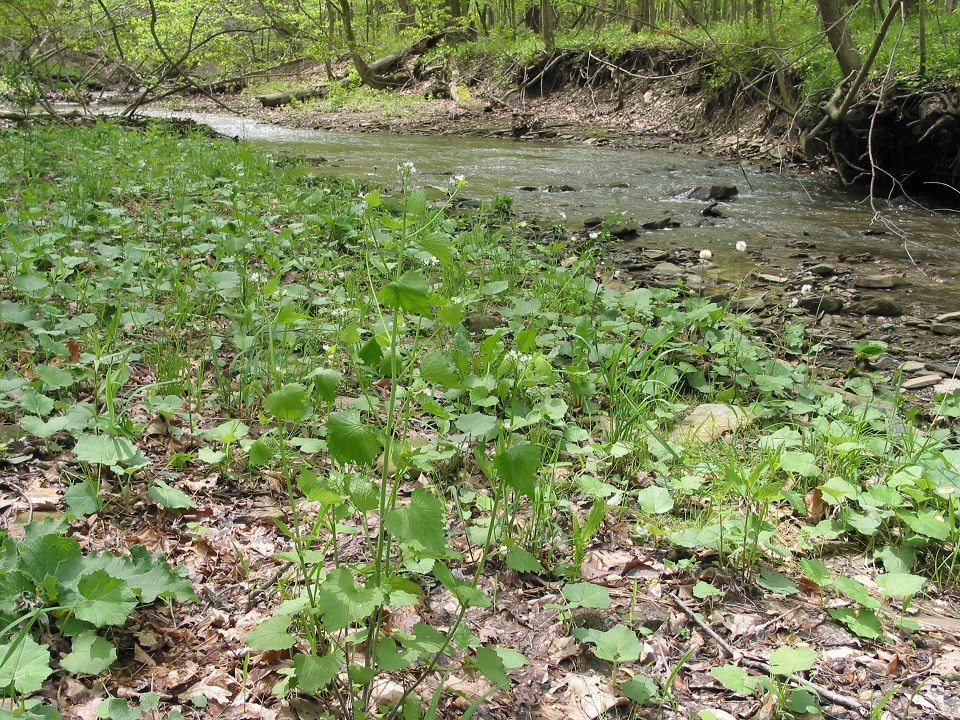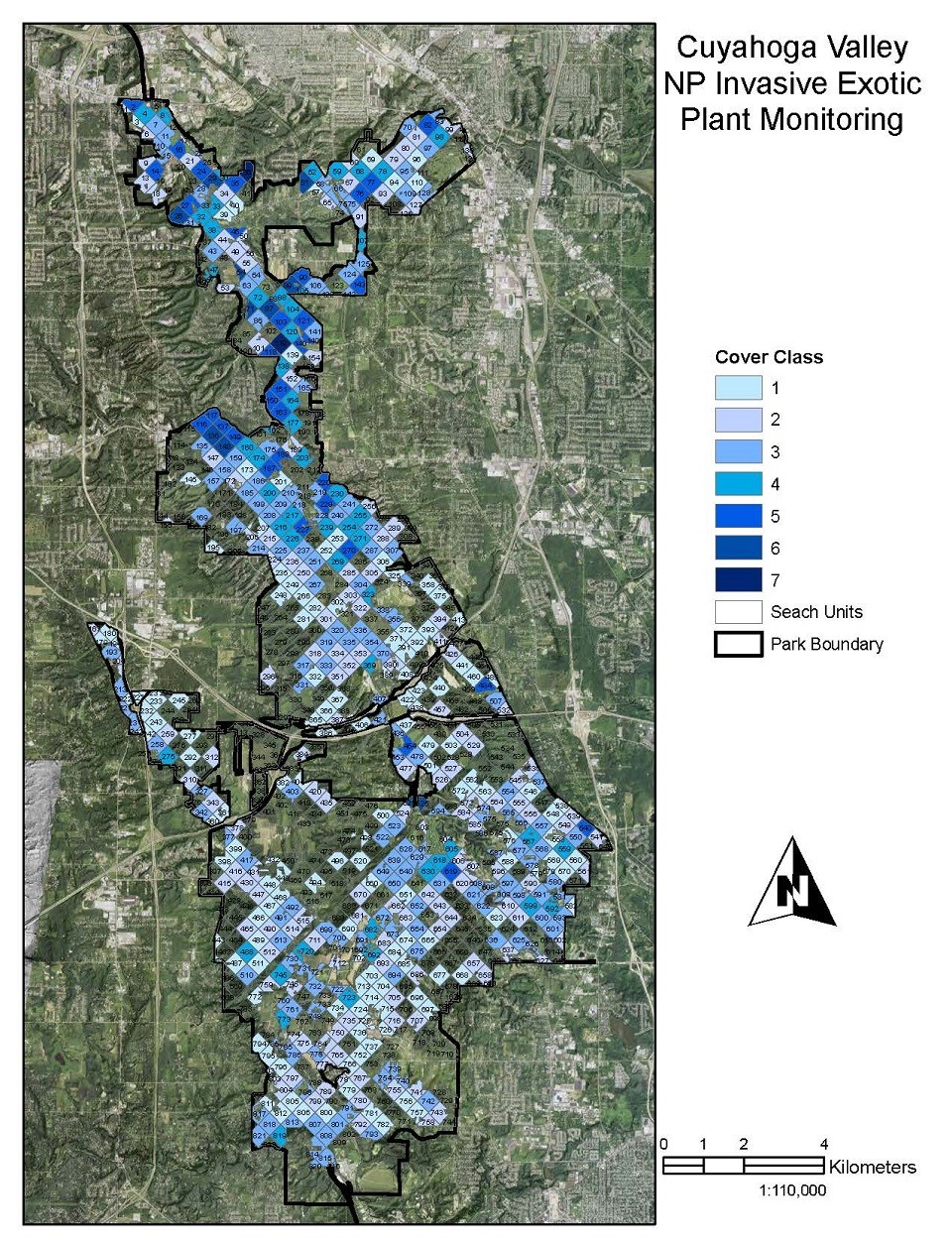Last updated: May 6, 2022
Article
Invasive, Non-native Plant Monitoring at Cuyahoga Valley National Park

NPS-Photo
.
Many invasive, non-native plants grow within these natural areas. In this study, we found 61 non-native, invasive plants. These are plants that have not historically grown in Cuyahoga Valley National Park. Human activity brought these plants to the park from other locations, including other continents.

NPS
While the park strives to support native plants and limit the introduction of invasive, non-native plants, these species will continue to be part of park ecosystems. In certain areas, park managers may control these plants to limit their spread or to maintain unique habitats. These projects may involve the careful use of herbicides, cutting, or fire. Through the introduction and control of invasive, non-native plants, humans continue to shape the park environment.
View the full report. (pdf)
Learn more about the Heartland Inventory & Monitoring Network.
Data in this report were collected and analyzed using methods based on established, peer-reviewed protocols and were analyzed and interpreted within the guidelines of the protocols.
Learn more about the Heartland Inventory & Monitoring Network.
Data in this report were collected and analyzed using methods based on established, peer-reviewed protocols and were analyzed and interpreted within the guidelines of the protocols.
